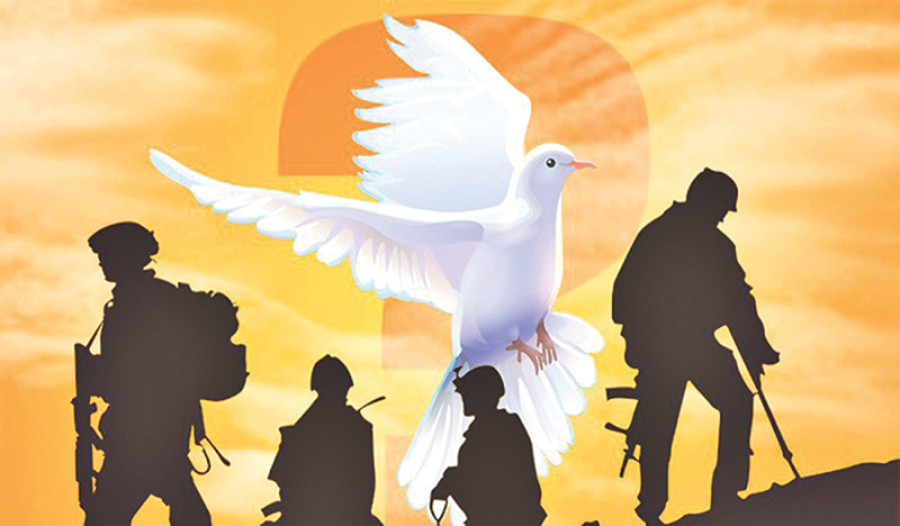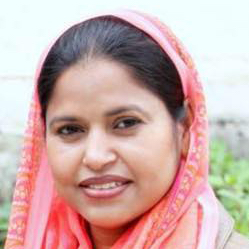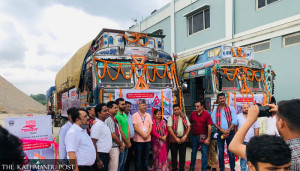Opinion
A chance to clean up
It has been 12 years since the signing of the Comprehensive Peace Agreement, marking an appropriate moment for us all to sit down and reflect.
Mohna Ansari
It has been 12 years since the signing of the Comprehensive Peace Agreement, marking an appropriate moment for us all to sit down and reflect. I remember 2006 as a time of optimism and euphoria. The awful war had drawn to a close and it felt as though nothing would hold us back. It felt like a victory for pretty much everyone. The andolan stirred empowering feelings; it felt as though there was no limit to what we could hope for and achieve.
A lot of progress has undoubtedly been made. Some important commitments made in the CPA have been implemented and life for a large segment of the population is much better than it was 12 years ago. However, as I travel around the country, I am continually met with widespread feelings of dissatisfaction, uncertainty and a sense of incompleteness. I don’t see the confidence that seemed prevalent during the closure of the war. I don’t see the optimism I felt 10 years ago, in May 2008, as the new republic was coming into fruition. It is clear that some people feel like winners while many others do not.
Perhaps those who have missed out the most are victims of conflict-era violations and their families. Let us not forget the CPA’s commitment to reveal the fate of the ‘disappeared people’ during the war. Those who have been searching for news of their loved ones, some of whom disappeared over 20 years ago, have faced daily suffering, year on end. But the commitment 12 years ago to bring truth and appropriate follow-up including reparations and memorials, was not only for the victims.
Lack of accountability
The general public deserved to know what occurred behind closed doors so that people can collectively work together to ensure that a war of such magnitude can be prevented. A key step in this process is to look at how key institutions have been performing and to strengthen them as necessary. Many aspects of the justice system were weak as the war commenced and to some extent contributed to the deepening of the war as it progressed. And these institutional weaknesses only got worse over the decade of war as the justice system shrank and the police consequently suffered many losses. The commitment to restructure the state is well on its way to implementation. But we have to make the dramatic process of adopting federalism work especially as we overcome its messy beginning. If we fail in this process, disappointment from people who feel let down by the peace process will continue to fester.
The CPA was a remarkable document comprised of lists and pages of problems and agreements. The promises we laid on paper must be fulfilled if we are to truly achieve peace in society. But some aspects have not materialised. For many of the most marginalised, a major promise made by the CPA was to bring large-scale land reform. Our failure to act on this commitment is a big disappointment. The NHRC receives frequent reports of land disputes which often lead to violence. Many of these incidents never reach the national media. What are the hurdles preventing women and the excluded from having genuine access to the justice system?
One of the barriers many of us remember from the wartime period is the apparent disappearance of the justice system from areas outside the Kathmandu valley. Some of us also remember how quickly people turned to alternative forms of justice. Ensuring equal access to the justice system is absolutely central to any idea supporting the rule of law. As long as there are groups excluded from justice, the rule of law will be meaningless.
In summary, it is clear that the CPA, where it has been put into practice effectively, has contributed to making Nepal a more just society. But there has been no real increase in ‘accountability’. What can people do and who can they turn to when they feel as though the state has not treated them justly? From police refusing FIRs to courts delaying justice for years, there is plenty of ground to support their feelings of exclusion from the justice process. Obviously this allows resentment to grow. The new federal structures provide the opportunity, at least in theory, for more responsive and sensitive treatment by the state. Too often, ordinary citizens run into closed doors and have nowhere to turn to seek remedy—this is why we see such frequent public indignation and protests pouring onto the streets.
Reports to the NHRC and also in the media indicate that we have only just begun to deal with widespread discrimination even though the CPA has made a commitment to ‘carry out an inclusive democratic and progressive restructuring of the state by eliminating the current centralised unitary form of the state in order to address problems related to women, Dalit, indigenous ethnic [Adivasi Janajati] people, Madhesi, oppressed, neglected and minority communities and backward regions by ending discrimination on class, caste, language, gender, culture, religion and region.’
This is an enormous task, but it is what all political parties committed to 12 years ago. We need a vibrant civil society to shine a light on these issues and to push for practical solutions to realise these goals.
As we set about this, we need to constantly ask ourselves some simple, basic questions about the steps needed to achieve this change. Personally, I am convinced that had the case of Maina Sunuwar and others been properly dealt with by the justice system then the chances of the Nirmala Pant case being so badly handled would have been greatly reduced. Past impunity shapes present impunity.
The questions are: will the transitional justice process clarify what happened at Madi, Kalikot, Doramba and Maharajgunj? Will the process help prevent such atrocities from ever happening again by strengthening the state’s values towards human rights, and will the victims receive justice and reparations? The steps taken to conceal details about conflict cases only encourages impunity today. The demands for justice is not an issue of revenge but represents a vital step forward in our reconciliation process. If we are to reach the future that the CPA began to plan for 12 years ago, we need to address prevailing forms of impunity.
Ownership over decisions
Finally, a word to our international friends is also warranted. Twelve years on, many recognise the help we have received from international friends during the peace process. Though we held onto ownership over the process, we have sometimes required international support. We have to abide by the international commitments that our governments have signed, like the Universal Periodic Review, every four years, which serves as a health check to our democracy. But our international friends have to also act with respect over Nepal’s ownership over our own decisions and destiny.
An obvious case of this is the issue of ‘transitional justice’, where too often international ‘support’ has come as a surprise to Nepali organisations and human rights actors. International actors must learn to support us without surprising us by trying to severely alter the dynamics or by trying to bring solutions that do not adjust well to the Nepali context.
Ansari is the spokesperson at the National Human Rights Commission.




 20.12°C Kathmandu
20.12°C Kathmandu










